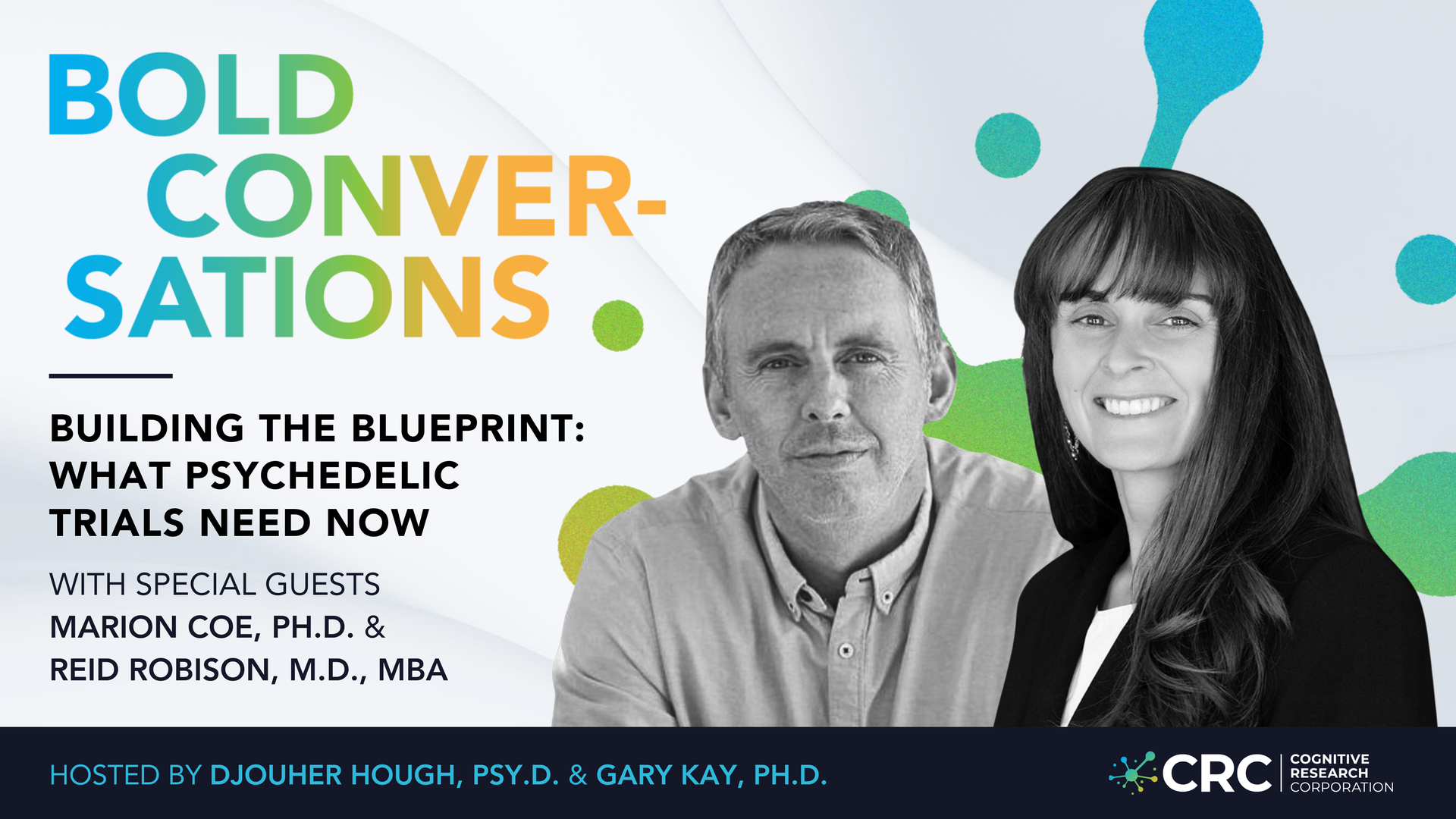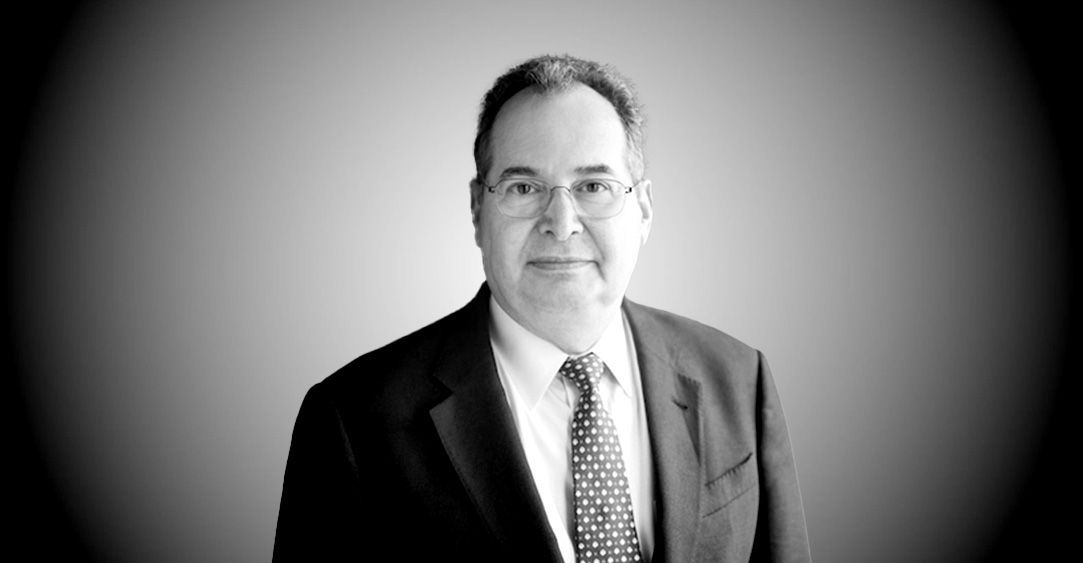webinar from CRC
Speed Kills: When Timelines Trump
Science in Neuropsychiatric Trials
Building the Blueprint:
What Psychedelic Trials Need Now

Speed Kills:
When Timelines Trump Science in Neuropsychiatric Trials
When pressure rises, pace takes over—and critical decisions get made too quickly. Timelines begin to overshadow strategy, and early missteps in CNS trials lead to preventable failure. Recovery is possible. But prevention is powerful.
This Bold Conversation brings together leaders from biotech, site operations, and CRO to unpack the root causes of signal dilution and share practical ways to protect outcomes from the start.
It’s built for those who lead with intention. Who know that success takes more than speed. It takes clarity, control, and the courage to get it right.
Psychedelic research is entering a defining moment. Programs are advancing, data are emerging, and the field is learning in real time what works and what needs to evolve. Yet many foundational elements of trial design, therapy delivery, and communication are still taking shape.
This Bold Conversation brings together experts helping define the next chapter of psychedelic clinical research to unpack lessons from recent regulatory reviews and explore what clinical teams need now to move forward with confidence, consistency, and scientific integrity.
It’s built for those committed to building the blueprint for the future of psychedelic trials — and getting it right.
Speed Kills:
When Timelines Trump Science in Neuropsychiatric Trials
When pressure rises, pace takes over—and critical decisions get made too quickly. Timelines begin to overshadow strategy, and early missteps in CNS trials lead to preventable failure. Recovery is possible. But prevention is powerful.
This Bold Conversation brings together leaders from biotech, site operations, and CRO to unpack the root causes of signal dilution and share practical ways to protect outcomes from the start.
It’s built for those who lead with intention. Who know that success takes more than speed. It takes clarity, control, and the courage to get it right.
TOPIC: Building the Blueprint: What Psychedelic Trials Need Now
Availability: 100 Seats
Format: Expert Panel Discussion
DURATION: 50 Minutes
DATE: Tuesday, November 11, 2025
TIME: 11:00 a.m. ET
meet the speakers
Voices You'LL Want to Hear From
Voices You'll Want to Hear From
Marion Coe, Ph.D.
Director, Clinical Development and Postmarketing Surveillance, Pinney Associates
Dr. Coe is a clinical pharmacologist and regulatory strategist specializing in CNS-active and psychedelic compounds, including MDMA and psilocybin. At Pinney Associates, she leads initiatives that bridge clinical innovation with regulatory compliance, focusing on compounds with complex benefit-risk profiles. She helps guide pharmaceutical sponsors through the intricacies of CNS drug development, from early-phase trials to post-marketing surveillance. Dr. Coe advises sponsors on clinical development plans, trial design, target product profiles, scientific due diligence, and emerging regulatory pathways for psychedelic therapies.
Reid Robison, M.D., MBA
Chief Medical Officer, Inner Space Research; Founding Board Member, Psychedelic Institute
Dr. Robison is a board-certified psychiatrist and clinical researcher specializing in ketamine and psychedelic medicine. He has served as principal investigator on more than 250 CNS clinical trials, including pivotal studies of psilocybin, LSD, 5-MeO-DMT, and MDMA-assisted psychotherapy. His early work with IV ketamine for treatment-resistant depression helped lay the foundation for subsequent large-scale studies and approvals. Dr. Robison is first author of the 2025 JAMA Psychiatry publication on MindMed’s MM120 for generalized anxiety disorder and co-author of Usona’s Phase II psilocybin trial manuscript. He previously founded Cedar Clinical Research—one of the top-enrolling Phase II–III psychedelic trial sites—and Cedar Psychiatry.
Djouher Hough, Psy.D. (Host)
Executive Director of Clinical Sciences, Cognitive Research Corporation
Dr. Hough is a licensed clinical psychologist with over 15 years of experience in CNS research, specializing in psychedelic and addiction medicine. She has led studies involving psilocybin, LSD, MDMA, DMT, and ketamine, advancing treatments for depression, PTSD, and substance use disorders. Her expertise includes trial design, Human Abuse Liability research, and regulatory oversight for Schedule I compounds. At CRC, she leads scientific strategy and cross-functional collaboration supporting the development of novel psychiatric and psychedelic therapies. Before joining CRC, Dr. Hough directed addictions and psychedelic research at a national multi-site network, where she oversaw DEA submissions for clinical trials conducted across the U.S.
Gary Kay, Ph.D. (Host)
Chief Scientific Officer & Co-Founder, Cognitive Research Corporation
Dr. Kay is a clinical neuropsychologist with more than 25 years of experience in CNS research and cognitive assessment. His expertise spans endpoint development, trial design, and data integrity in CNS and psychiatric research. Dr. Kay has authored over 75 publications and served as Principal Investigator for more than 20 CNS studies evaluating the effects of medications, nutraceuticals, and other interventions on cognition, mood, and psychomotor performance. He is an Associate Professor of Neurology at Georgetown University, a Fellow of the National Academy of Neuropsychology, and a consultant to governmental, corporate, and medical organizations. Dr. Kay has been an invited speaker at professional meetings worldwide.
Be Bold. Be ready. Be Early.
access insights that could prevent your trial from becoming a cautionary tale.
The Cost of
Getting It Wrong
In psychedelic research, small missteps can have outsized consequences. Unclear definitions of therapy, inconsistent facilitator training, or communication that shapes participant expectations can all distort outcomes and delay progress. Each decision — from how sessions are documented to how bias is mitigated — carries more weight in a field still defining its standards.
This Bold Conversation examines how those challenges are being addressed in current and upcoming studies. The panel will explore what sponsors, CROs, and sites can learn from recent reviews, where alignment is most critical, and how thoughtful design can strengthen both scientific credibility and regulatory confidence.
You’ll gain perspective on:
- Lessons emerging from recent psychedelic program reviews
- Defining and documenting therapy within trial protocols
- Balancing therapeutic engagement with scientific rigor
- Standardizing facilitator credentialing, training, and oversight
- Anticipating regulatory expectations and REMS considerations early




